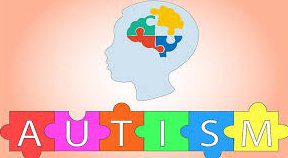
It is very important to begin supporting your child with an autism diagnosis at an early age so they can learn how to manage their behaviors and emotions. For parents, it can be quite a challenge to support a child that has an autism spectrum diagnosis; however, there are many ways to find support and useful information to care for the child properly.Below we will go through some tips for parents on how to support the development of a child with autism, from rewarding good behavior to things like sticking to a schedule and paying attention to your child’s sensory sensitivities. Another important intervention is aba therapy for autism which aims to help the child learn new skills and understand how to control emotions.
Be Consistent
For children with an autism spectrum diagnosis, it can be difficult to transfer skills and knowledge learned from a particular setting and apply it to another. A good example of this is when a child with autism learns to communicate using sign language while at school; however when they return home at the end of the day, they don’t think to use this skill.To combat this inconsistency, it is a good idea to understand how your child is being taught at both school and therapy sessions so you can continue with the same teaching. Once you understand how your child is learning, you can encourage them to use their new skills in different environments to consolidate their new way of thinking.
Applied Behavior Analysis Therapy

ABA therapy, or applied behavior analysis therapy, is used to help a child with an autism diagnosis learn new skills and understand how to behave appropriately, so they have an easier time integrating into society. This type of therapy works by rewarding certain behaviors that are regarded as positive and cover a variety of areas, including language, communication, and a range of other skills.
ABA therapy can be used to develop both complex and simple skills, which can include things like praising the child for sharing toys with others or even brushing their teeth. It is an extremely effective way of teaching a child with an autism spectrum diagnosis how to think and act appropriately as they develop into adulthood.
Stick to a Schedule
A strict schedule is essential for children with an autism spectrum diagnosis as they are less comfortable with change and variables in their life. Keeping to a schedule will give the child a better environment for them to develop properly. The best way to do this is by having the same daily timings for meal times, bedtime, school, and therapy sessions. It is impossible to keep to the same schedule every day, but efforts should be made to avoid disruptions.
Create a Safety Zone
Creating a safety zone in your home with a child with an autism spectrum diagnosis is a great way to provide a place where your child can feel secure and relaxed. This can be done quite easily by allocating a room or area in your home they know they can go to and calm down. You can use things like colored tape to mark boundaries and use picture labels on items in your home.
Look for Nonverbal Cues
Children with an autism spectrum diagnosis often use other ways to communicate other than verbal, so it is vital that you, as the parent, are looking out for the child’s nonverbal cues. These types of cues can come in the form of facial expressions and gestures they make to express their emotions.They may use these nonverbal cues to communicate that they are hungry or upset, and you need to be able to pick up on them, so they know that you are paying attention to their feelings.
Make Time for Fun

It is important that you make time to have fun with your child with an autism spectrum diagnosis, as it can be easy for parents to forget that they are still children, especially if they are focusing on managing their diagnosis. This means setting time aside for fun activities and playtime.As you learn more about what your child enjoys by looking out for nonverbal cues such as smiling and acting excited, you can tailor the fun activities to encourage them to explore their interests. Playtime is also crucial for a child’s development as they learn how to interact with others, communicate and learn new skills.
